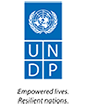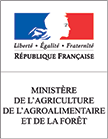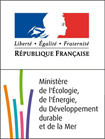The Economics of Ecosystems and Biodiversity for Agriculture and Food (TEEBAgFood) initiative aims to contribute to the dialogue on climate change mitigation and adaptation through research and outreach. Specifically, TEEBAgFood will offer new insight into greenhouse gas (GHG) emissions under different agri-food systems. We evaluate the co-benefits of measures aimed primarily at reducing GHG emissions, i.e. ecosystem services such as nutrient cycling, providing habitat for wildlife, local air quality, and human health.
Demonstrating and measuring nature‘s values requires a rigorous, evidence-based assessment of business-as-usual and alternative policy scenarios. Scenarios under this study will account for climate risks to ecosystem services.
TEEBAgFood has direct and indirect links with 16 of the 17 SDGs, especially with SDG target 15.9, “by 2020, integrate ecosystems and biodiversity values into national and local planning, development processes, poverty reduction strategies and accounts.”
UNEP’s TEEB Office will use this Discussion Forum as its primary launch platform for the TEEBAgFood study. Specifically, we will use this opportunity to report on findings from a number of studies focused on different sectors heavily dependent on external factors (i.e. livestock, rice, palm oil, agro-forestry, and inland fisheries).
We will seek to identify the economic and policy drivers and incentives that influence land-use decisions and management techniques within production systems around the world. The presentation includes a unifying valuation framework that pinpoints specific knowledge and research gaps vis-à-vis impacts and dependencies in “eco-agri-food systems”, including human health.
One concrete output of this launch will be the publication of an Interim Report, including an assessment not only of these sectors and the valuation framework, but also of the role of natural capital accounting and agroecology in providing a pathway for change.
In the weeks leading up to the conference, a social media campaign will elicit perspectives from global stakeholders, which will be shared and discussed by the speakers. During the discussion forum, a panel of experts will field questions from the audience, while a live Twitter audience will be engaged to ensure the wider community is given an opportunity to take part.
After the forum, the TEEB website and social media channels will present the issues discussed and forum outcomes.
Key questions addressed
- How can we better recognize, demonstrate and capture the values of ecosystems and biodiversity in policies that shape decision-making for the agriculture and food sector?
- How important are ecosystem services and biodiversity for agricultural production, and are they adequately valued?
- Is a focus on impacts and dependencies in the eco-agri-food system compatible with (or indeed necessary for) feeding a growing human population?





































